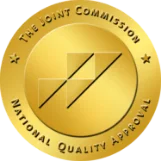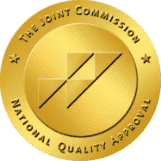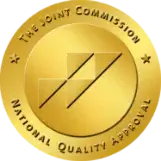
Residential Rehab in Los Angeles
Residential rehab is one of the most effective ways to reach recovery for those struggling with addiction and substance issues.
Iris provides 24/7 care with your comfort in mind.
Table of Contents
At Iris Healing Center, our residential rehab and inpatient program in Los Angeles, California offers a safe and serene environment for individuals seeking freedom from addiction and related challenges.
If you or someone you know has been struggling with addiction and is looking for effective drug and alcohol rehab programs in Los Angeles, Iris Healing Retreat is here to help.
Call us now at 844-663-4747 or verify your insurance now.
How Do I Know I Need Residential Rehab?
Recognizing the need for residential rehab is a critical step towards recovery. This type of treatment may be necessary if you struggle with any of the symptoms listed below. However, it is important to note that addiction affects everyone differently, and the best treatment options for one individual might not be as ideal for another.
Consider residential rehab if you:
- Struggle with substance dependence that affects daily functioning
- Have tried outpatient treatment without success
- Experience withdrawal symptoms when attempting to quit
- Suffer from co-occurring mental health disorders
- Need a structured environment to overcome addiction
If these situations resonate with you, residential rehab at Iris Healing Retreat offers the intensive support and structured care needed to navigate the complexities of recovery.
How Inpatient Rehab in Los Angeles Works
At Iris Healing Retreat, our inpatient rehab is anchored in trauma-informed care. This approach recognizes the significant impact of trauma on mental health and addiction.
We focus on:
- Creating a safe environment where every client feels secure to discuss their issues.
- Empowering clients by highlighting their strengths and promoting autonomy in their recovery journey.
- Integrating therapies that address both the psychological and physiological impacts of trauma, ensuring a holistic healing process.
- Our team of experts tailors each treatment plan to the individual, acknowledging their unique experiences and needs.
What To Expect from Residential Treatment in Los Angeles
Residential treatment provides a structured and supportive environment for individuals recovering from addiction and other related issues. Below is a step-by-step breakdown of how inpatient rehab typically works and what someone entering such a program can expect.
Intake & Assessment
Initial Contact: The process begins with the initial contact, where potential clients or their loved ones reach out to the rehab facility to inquire about services.
Comprehensive Assessment: Upon deciding to enter the program, individuals undergo a comprehensive assessment. This includes medical evaluations, psychological testing, and substance use history to create a tailored treatment plan.
Detoxification
Medical Supervision: For those who require detox, the first phase is medically supervised detoxification. This ensures safety as the body withdraws from substances. Medical professionals manage withdrawal symptoms through medication and other interventions to ensure comfort and safety.
Therapy & Counseling
Individual Therapy: Clients will have regular sessions with a therapist. These sessions typically focus on understanding the root causes of addiction, learning coping strategies, and planning for long-term sobriety.
Participants engage in group sessions, which provide peer support and allow clients to share experiences and learn from each other. Some programs include family therapy to repair relationships and integrate family support systems.
Specialized Treatment & Activities
Additional therapies like CBT, DBT, trauma therapy, art therapy, and Neurofeedback might be included.
In addition, physical activities such as yoga, exercise, and meditation may be part of the daily schedule, supporting overall wellness and stress management.
We often include workshops that teach about addiction, health, and skills for maintaining sobriety.
Life Skills Training
Clients receive training in practical life skills, including stress management, anger management, and communication skills, essential for recovery.
Services Offered at Iris Healing Center
Iris Healing Retreat provides a variety of therapeutic modalities designed to foster deep, lasting recovery.
Some of the services include:
Cognitive Behavioral Therapy (CBT) is a staple addiction treatment that helps reframe negative thinking patterns to improve emotional regulation and develop personal coping strategies.
Dialectical Behavioral Therapy focuses on mindfulness, emotional regulation, and stress tolerance, crucial for individuals dealing with intense emotional and behavioral disturbances.
Essential practices that enhance mental clarity, reduce stress, and support overall well-being.
Art therapy provides non-verbal outlets for emotions and can be particularly powerful in expressing thoughts and feelings that are hard to articulate.
Recognizing the body-mind connection, we emphasize the importance of physical health and nutritional therapy as a critical component of recovery.
How Long Does Inpatient Rehab in Los Angeles Last?
The duration of inpatient rehab varies depending on individual needs and the severity of the addiction. Typically, programs can last from 30 days to 90 days, but some may require longer stays for more profound healing.
At Iris Healing Retreat, we assess each client’s progress continuously to ensure their treatment duration optimally supports their recovery.
How Effective is Inpatient Rehab?
Inpatient rehab has a strong track record of effectiveness, particularly for those with severe addiction or dual diagnosis disorders. The immersive nature of residential treatment allows for intensive therapy and support, significantly improving the chances for a successful recovery. Studies indicate that longer stays in residential treatment are associated with better outcomes, emphasizing the value of a committed and extended care approach.
How Much Does Inpatient Rehab in Los Angeles Cost?
The cost of inpatient treatment varies based on several factors, including the length of stay and the types of therapies included in the program. At Iris Healing Retreat, we strive to provide transparent pricing and accept various insurance plans to ease the financial burden for our clients. We also offer financial consultation to help navigate payment options and ensure that care is accessible.
Learn More About Our Inpatient Rehab in Los Angeles
Contact Iris Healing Retreat today to learn more about our residential treatment program and how we can help you or your loved one reclaim a fulfilling, sober life. Our compassionate team is here to guide you through every step of the way. Join us at Iris Healing Retreat, where healing begins.
























